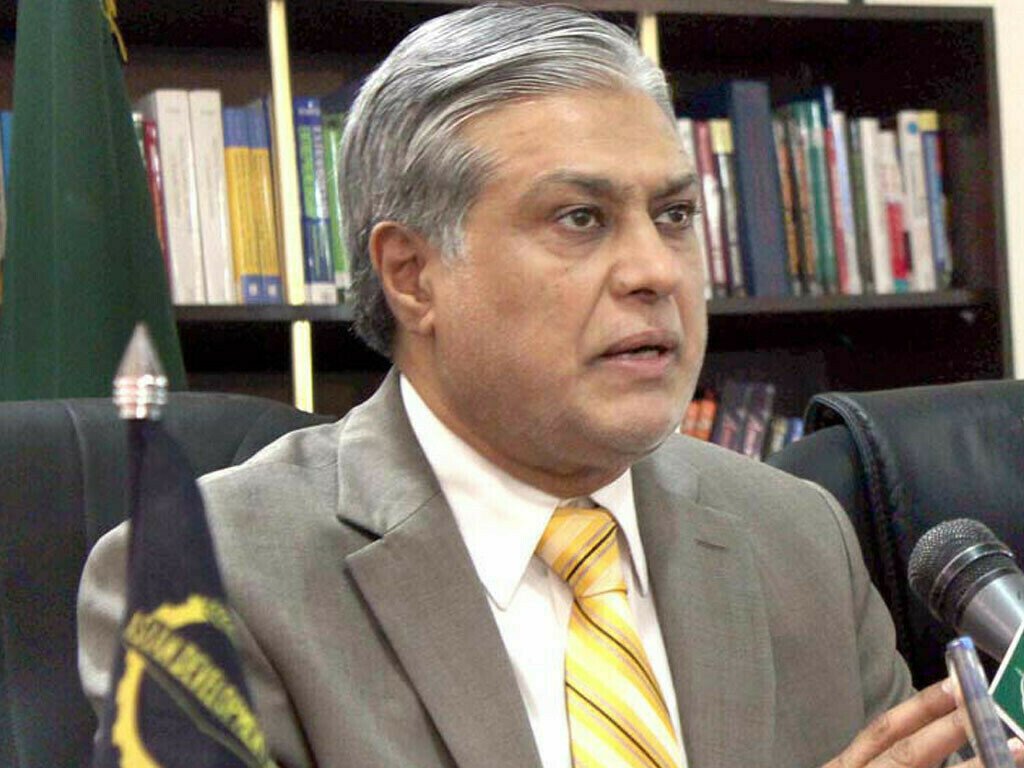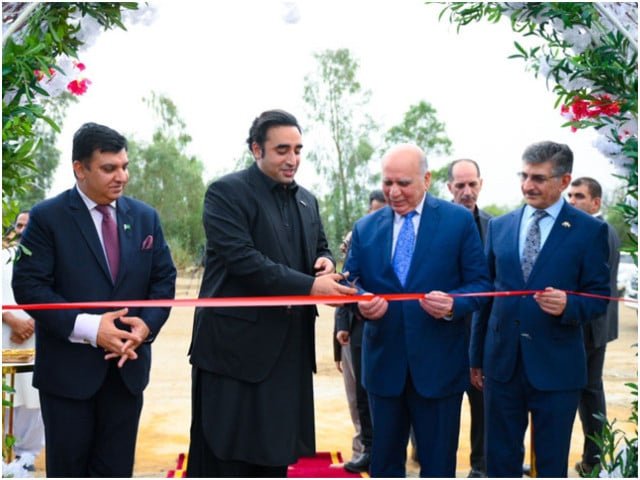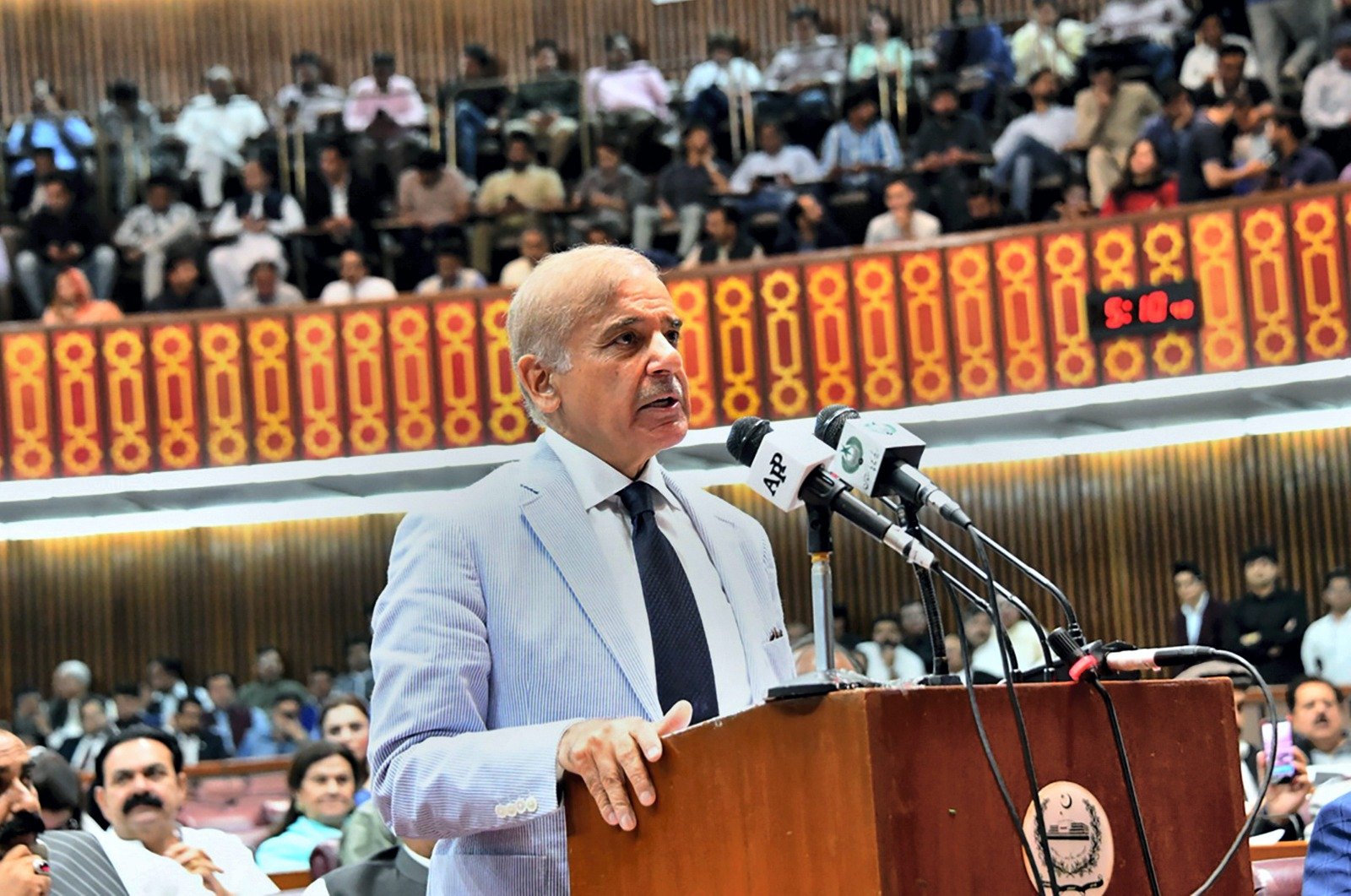Ishaq Dar Seeks to Calm Nerves Over Rising Debt Hitting $130 Billion

Deputy Prime Minister Ishaq Dar recently addressed concerns about Pakistan’s economic situation, assuring the nation that the country is on a path to financial stability. His remarks come amidst a backdrop of economic challenges, including rising foreign debt and high inflation, which have sparked public anxiety and criticism from political opponents. Here’s a detailed breakdown of Dar’s speech and the implications for Pakistan’s economy.
Key Points from Ishaq Dar’s Address:
1. Economic Stability Assurance:
- Financial Stability Path:
Ishaq Dar emphasized that Pakistan is moving towards financial stability despite current economic challenges. He stated that the government has implemented strategies aimed at strengthening the economy and is committed to seeing these plans through to fruition. - Overcoming Challenges:
Dar highlighted the government’s resilience in facing economic adversities, stating, “We are strongly facing all the challenges.” He assured citizens that the situation is under control and encouraged them not to worry about the country’s financial health.
2. Addressing Negative Behaviors:
- Curbing Negative Attitudes:
Dar stressed the importance of changing societal attitudes that contribute to economic instability. He believes that fostering a positive economic mindset is crucial for growth and urged the public to support government efforts in this regard. - Societal Unity:
By calling for a collective effort, Dar underscored the role of societal unity in achieving financial stability, suggesting that cooperation between citizens and the government is essential for overcoming economic hurdles.
3. Economic Potential and Barriers:
- Unlocking Economic Potential:
The Deputy Prime Minister pointed out that Pakistan has significant untapped economic potential. According to Dar, removing existing barriers could accelerate economic growth and propel Pakistan towards prosperity. - Government Efforts:
Dar mentioned that the government is actively identifying and dismantling obstacles that hinder economic progress. He believes that these efforts will soon translate into tangible improvements in the nation’s financial outlook.
4. External and Internal Threats:
- Threats of Default:
Dar warned about elements both inside and outside Pakistan that aim to destabilize the country financially. He stated, “Elements are present in and outside Pakistan, who want it to end up as a default state,” highlighting the geopolitical pressures facing the nation. - Government’s Preventive Measures:
In response to these threats, Dar assured that the government is focused on a singular agenda: preventing Pakistan from defaulting. He emphasized that continuous efforts are being made to safeguard the economy against such threats.
5. Development Projects and Resource Management:
- Development Initiatives:
Despite limited resources, Dar claimed that the government is committed to ongoing developmental projects. He suggested that these projects are crucial for sustaining economic growth and improving infrastructure. - Resource Allocation:
The Deputy Prime Minister highlighted the government’s strategic allocation of resources to ensure that development initiatives continue without interruption, emphasizing the importance of prudent financial management.
6. Inflation and Economic Indicators:
- Inflation Reduction:
Dar announced a significant decrease in the inflation rate, claiming it has fallen from 30% to 10%. This reduction is seen as a key indicator of economic stabilization and is part of the government’s strategy to ease the financial burden on citizens. - Foreign Debt Management:
Addressing concerns about Pakistan’s rising foreign debt, which has reached $130 billion, Dar maintained that there is no need for alarm. He argued that the government has successfully managed the debt levels while avoiding bankruptcy.
7. International Relations and Economic Strategy:
- Global Engagement:
As both Deputy Prime Minister and Foreign Minister, Dar’s remarks reflect Pakistan’s strategy of engaging with international partners to bolster economic resilience. This includes seeking foreign investments and strengthening trade relations to support economic recovery. - Financial Diplomacy:
Dar’s role in foreign affairs is pivotal in aligning Pakistan’s economic strategy with its diplomatic efforts. His emphasis on international cooperation suggests a focus on leveraging global partnerships to address economic challenges.
Implications for Pakistan’s Economy:
1. Government’s Economic Agenda:
- Policy Focus:
The government’s focus on economic stability indicates a continued emphasis on fiscal reforms and policies aimed at boosting growth. This approach is likely to involve measures such as tax reforms, regulatory adjustments, and investment incentives to stimulate economic activity. - Public Confidence:
Dar’s reassurances are intended to bolster public confidence in the government’s economic management. By addressing public concerns directly, the government aims to mitigate fears of economic instability and maintain social harmony.
2. Inflation and Public Impact:
- Inflation Control:
The reported decrease in inflation is a positive sign for the economy, suggesting that government measures to control price rises are taking effect. This development could lead to increased consumer confidence and spending, further driving economic growth. - Cost of Living:
A lower inflation rate may help alleviate the cost of living for citizens, particularly those affected by recent economic pressures. This could result in improved public sentiment and support for the government’s economic policies.
3. Foreign Debt and Economic Resilience:
- Debt Sustainability:
While the foreign debt remains high, Dar’s comments suggest that the government is confident in its ability to manage and service this debt without compromising financial stability. This involves maintaining a balance between borrowing and sustainable economic growth. - Investment Climate:
By demonstrating fiscal responsibility, the government aims to create a favorable investment climate that attracts foreign investors. This approach is critical for securing the financial resources needed to support long-term economic development.
4. Developmental Projects and Infrastructure:
- Infrastructure Growth:
Continued investment in developmental projects indicates the government’s commitment to enhancing infrastructure and public services. These efforts are expected to contribute to economic growth by improving transportation, communication, and energy sectors. - Job Creation:
Development projects are also likely to generate employment opportunities, providing a boost to the labor market and contributing to overall economic stability.
5. Geopolitical Challenges and Economic Strategy:
- Regional Stability:
Dar’s warnings about external threats highlight the geopolitical challenges facing Pakistan. The government’s focus on economic stability is intertwined with efforts to navigate these challenges through diplomacy and strategic partnerships. - Economic Security:
Ensuring economic security is a priority for the government, as it seeks to safeguard national interests against potential threats. This involves both domestic policies and international collaborations to reinforce Pakistan’s economic position.
Deputy Prime Minister Ishaq Dar’s address underscores the government’s commitment to navigating Pakistan through its current economic challenges. By emphasizing financial stability, development projects, and strategic international engagement, Dar aims to reassure the public and stakeholders of the government’s ability to steer the nation towards prosperity.
The focus on reducing inflation and managing foreign debt reflects a comprehensive economic strategy that seeks to balance short-term relief with long-term growth objectives. As Pakistan continues to face both domestic and external pressures, the government’s actions in the coming months will be crucial in determining the country’s economic trajectory and public confidence in its leadership.










